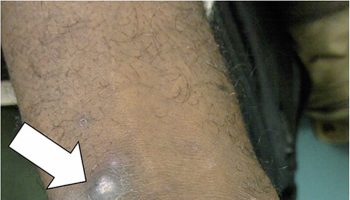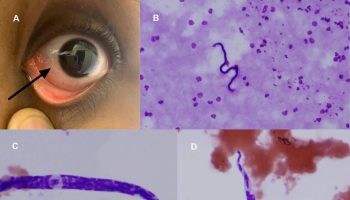Contents
What is phantosmia
Phantosmia is an olfactory hallucination that makes you detect smells that aren’t really present in your environment. The odors detected in phantosmia vary from person to person and may be unpleasant or pleasant and affect how things taste. Phantosmia can occur in one or both nostrils. The phantom smell may seem to always be present or it may come and go.
Phantosmia may occur after a head injury or upper respiratory infection. Phantosmia can also be caused by temporal lobe seizures, inflamed sinuses, brain tumors and Parkinson’s disease.
Consult your doctor if you experience the symptoms of phantosmia, so that your doctor can rule out any serious underlying disorders that may be causing the detected smell.
Parosmia is another smell disorder that’s similar to phantosmia. But, in parosmia a smell that’s present in your environment is distorted. Parosmia can occur with damage to the olfactory system, such as after a severe respiratory infection.
Phantosmia causes
Phantosmia is usually caused by an infection such as:
- a cold
- flu
- sinusitis (sinus infection)
Less common causes include:
- growths in your nose (nasal polyps)
- migraines
- epilepsy
- mental health problems like depression
- a head injury
- brain tumors
- Parkinson’s disease
- chemotherapy, usually transient and resolve within three months of treatment cessation 1
Phantosmia symptoms
Phantosmia is the sensation of an odor that isn’t there.
Some phantom smells are pleasant, but people with phantosmia more often describe unpleasant, foul, or disgusting odors. These may include:
- burnt toast
- burning rubber
- cigarette smoke
- a chemical or metallic smell
- a spoiled or rotting smell
- a stale or moldy smell
People are often unable to identify the specific smell, or it may be a smell that they have never encountered before.
Phantosmia can feel distressing and may get in the way of daily life. It can influence a person’s sense of taste, leading to a reduced appetite and weight loss.
Phantosmia diagnosis
To diagnose phantosmia, a doctor will first perform a physical exam of the person’s head and neck. They may ask about any other symptoms and perform tests to check the individual’s other senses.
A doctor may order an endoscopy or rhinoscopy to look into the nasal cavity and check for issues that could cause phantosmia. They may also request specific and comprehensive tests or refer people to a specialist.
Imaging tests, including CT scans, MRI scans, and EEG scans are sometimes used to check for abnormalities in the nasal cavity, brain, or nervous system.
Phantosmia treatment
Treatment for phantosmia depends on the cause
Treating the cause of your phantosmia may help get rid of it.
Sometimes it might go away on its own, but it can be permanent.
Rinsing the inside of your nose with a salt water solution may help temporarily stop the strange smell.
- Smell and Taste Disorders in Primary Care. Am Fam Physician. 2013 Dec 15;88(12):852-859. https://www.aafp.org/afp/2013/1215/p852.html[↩]




